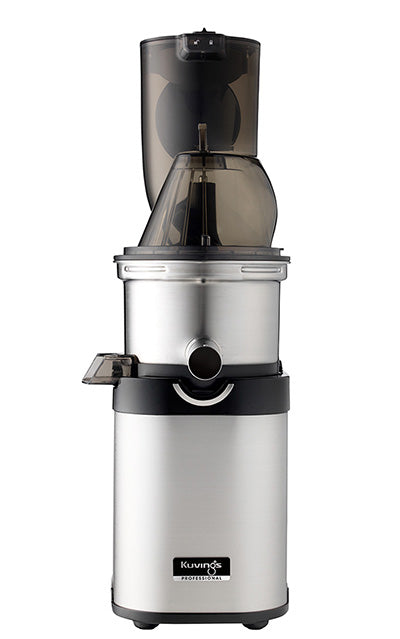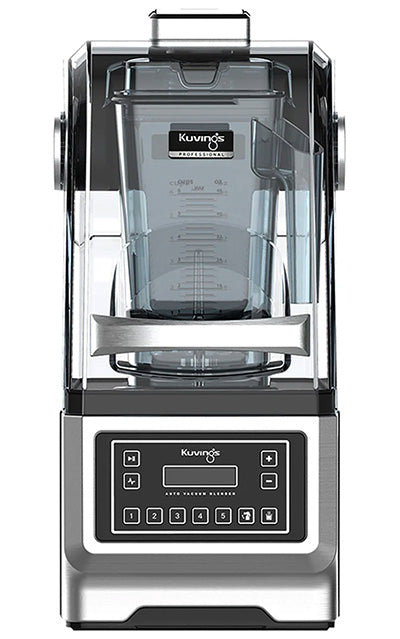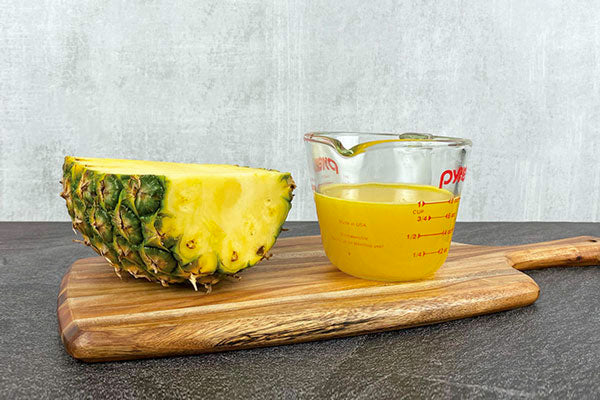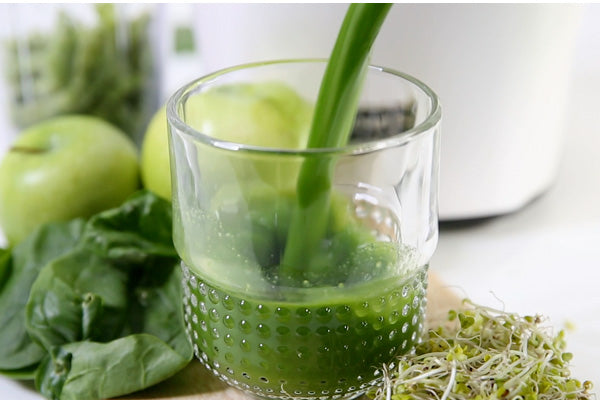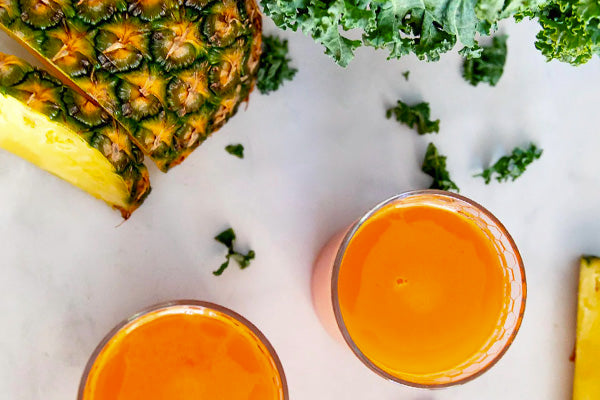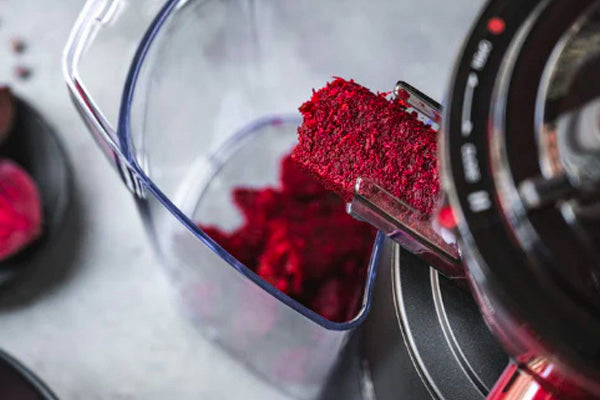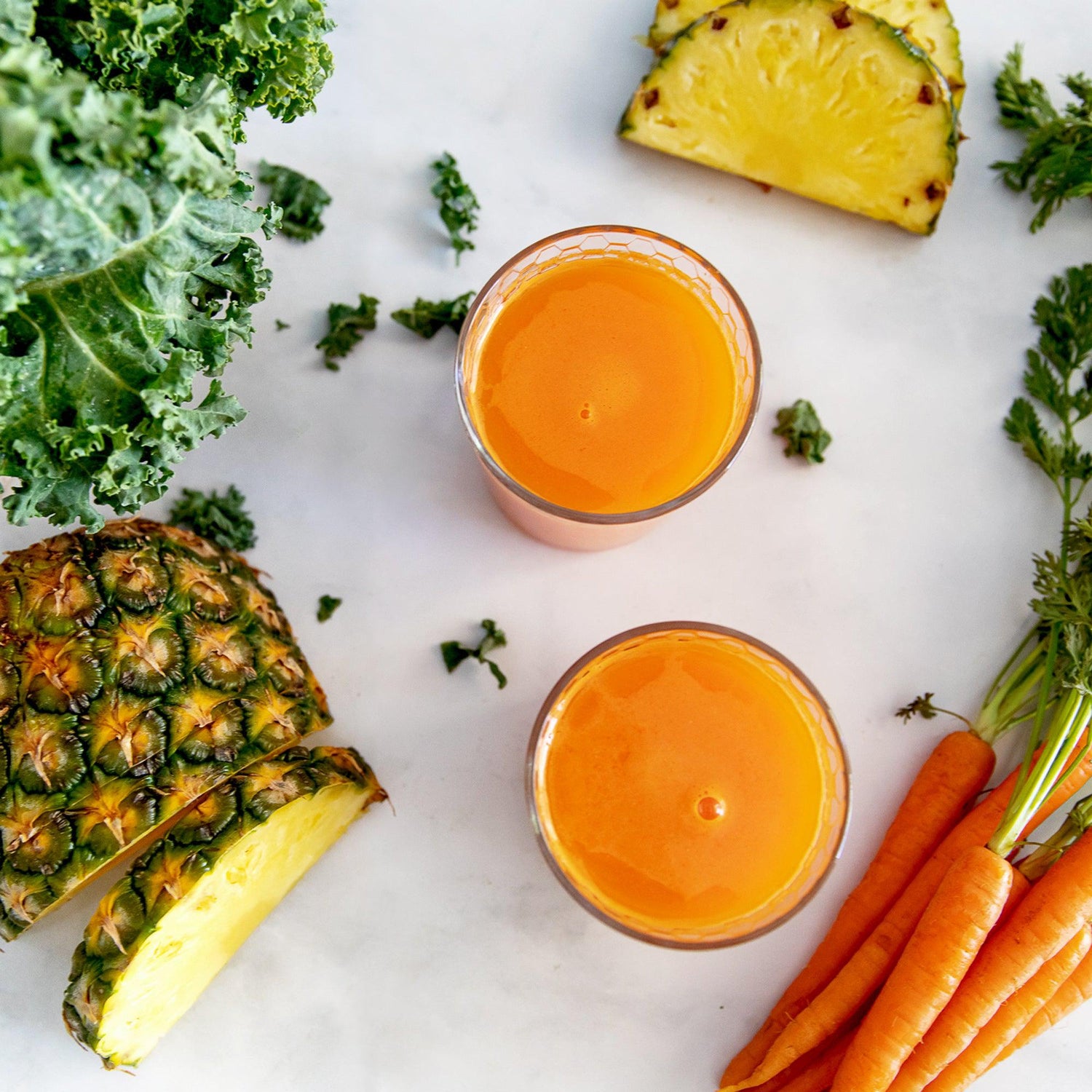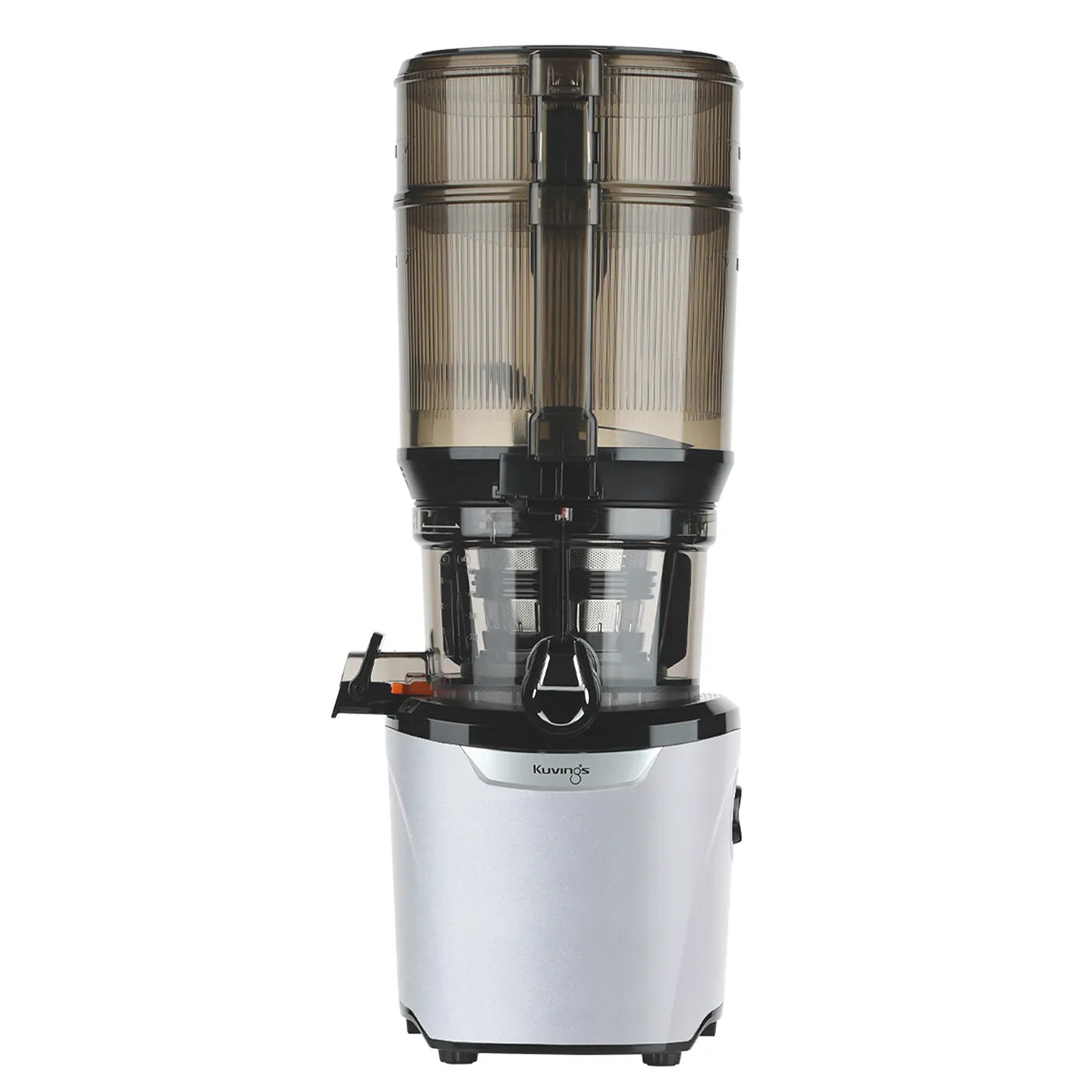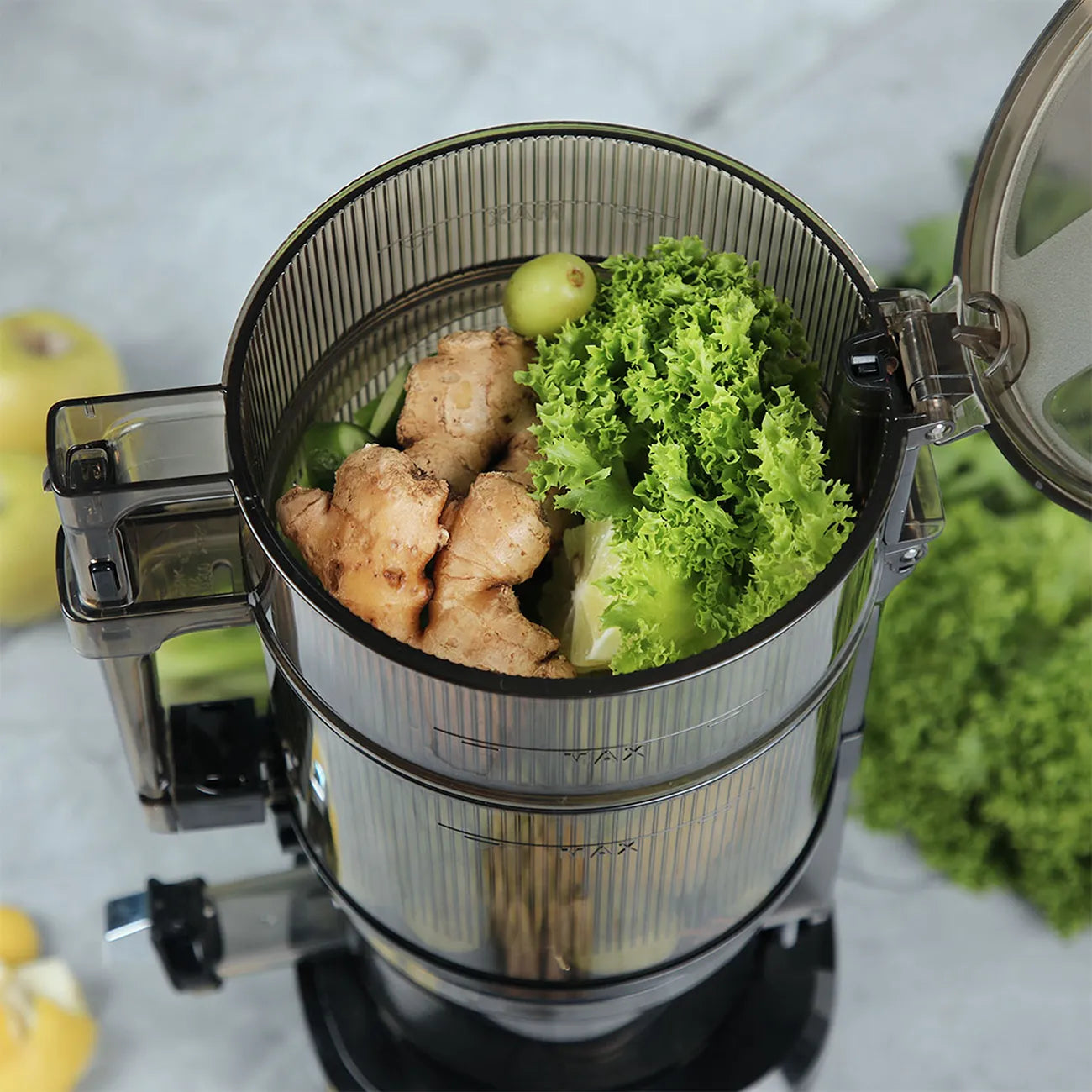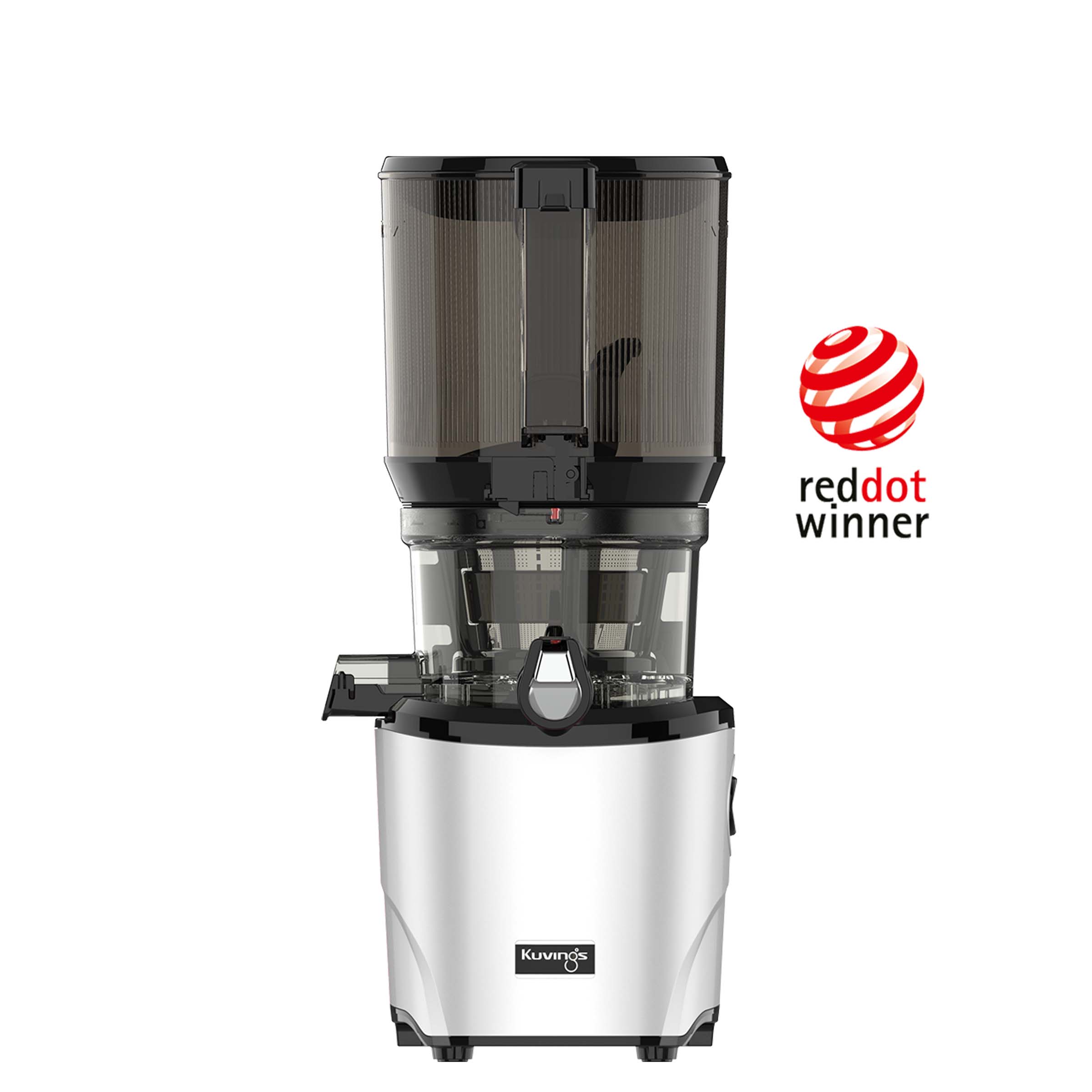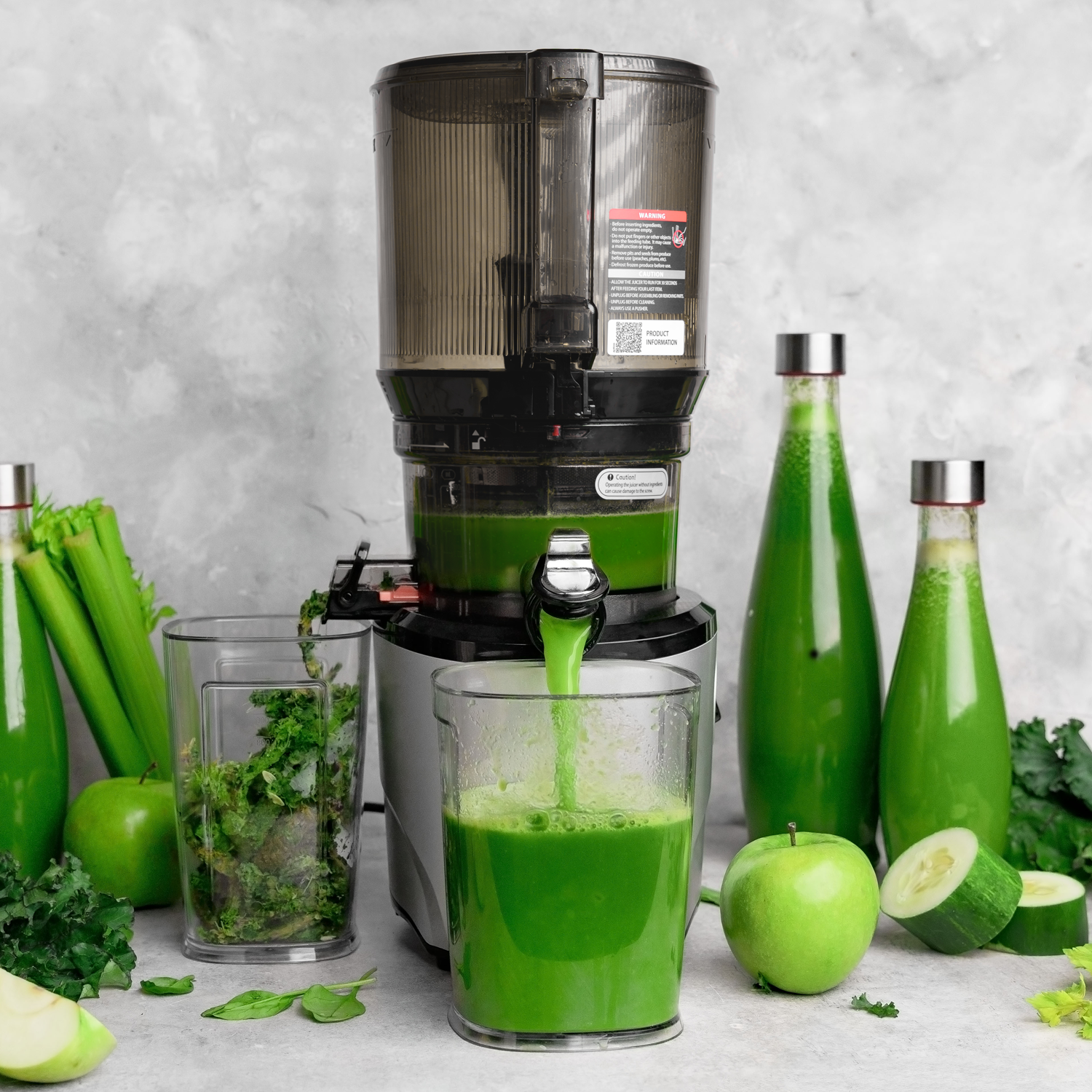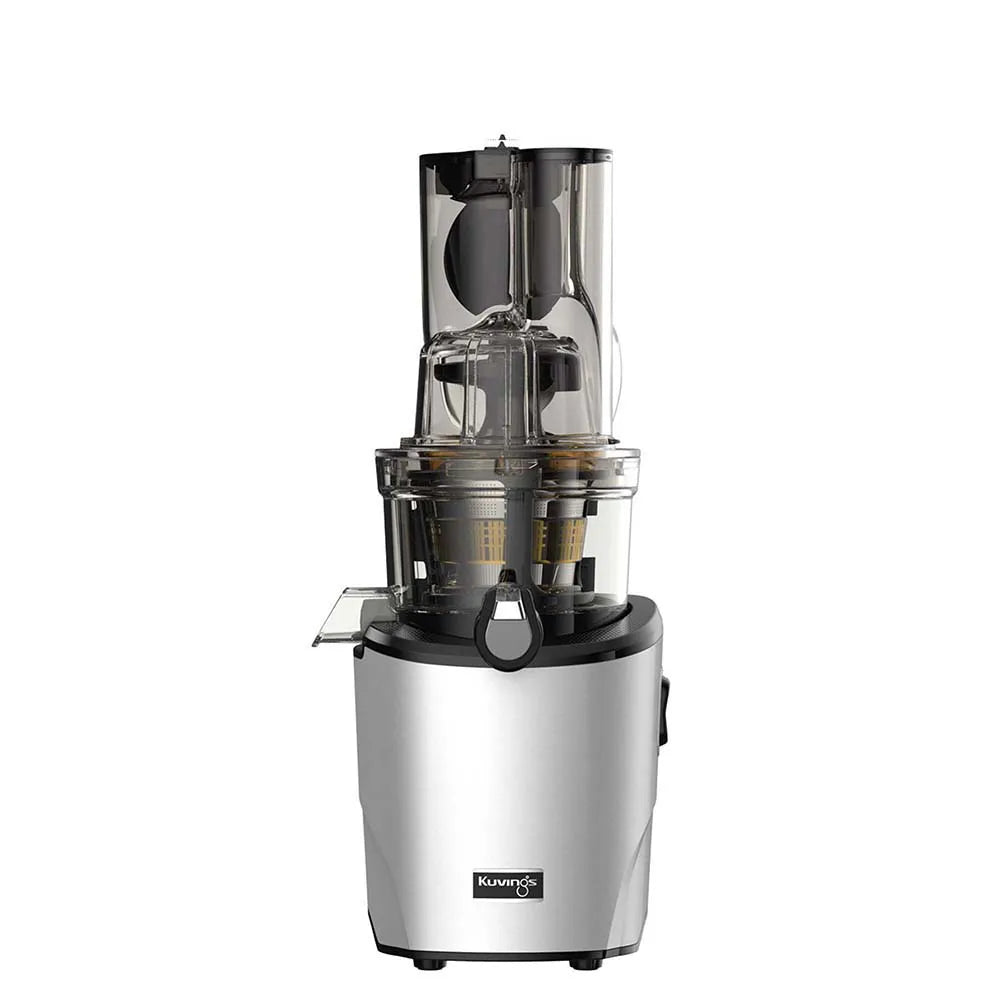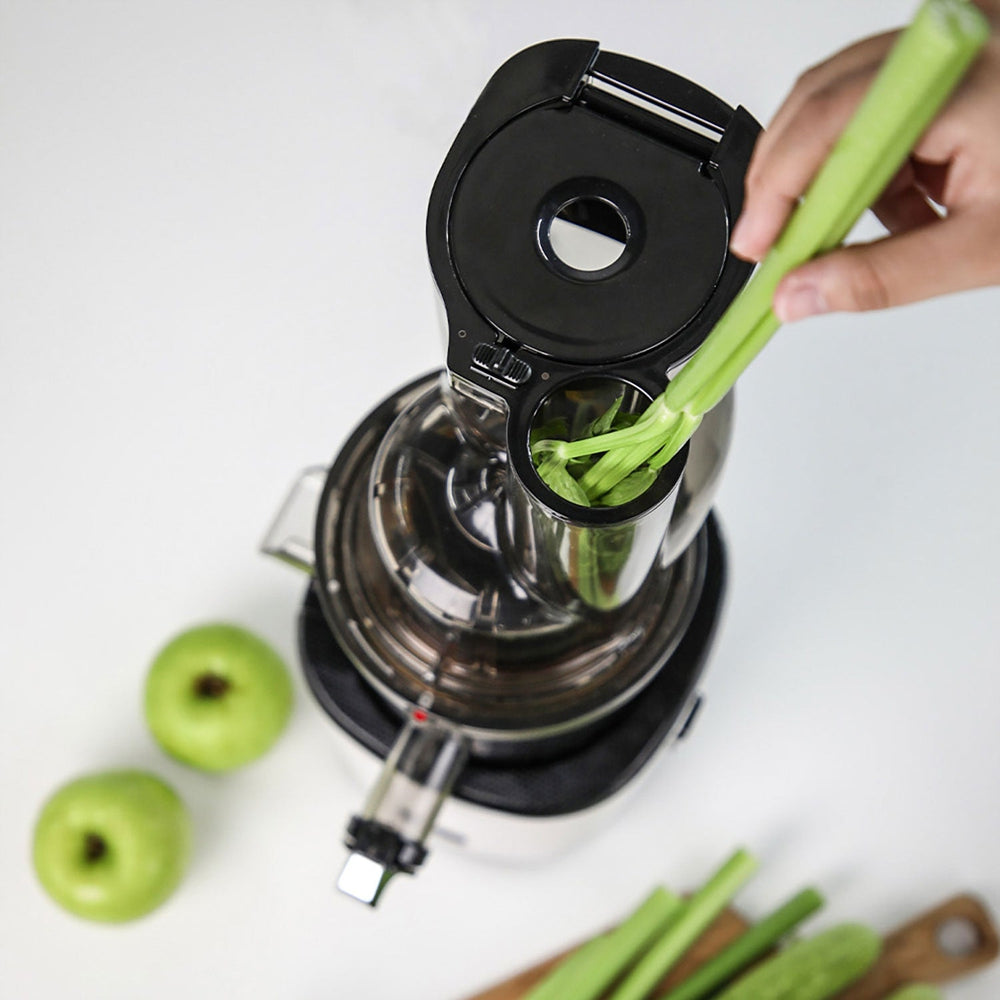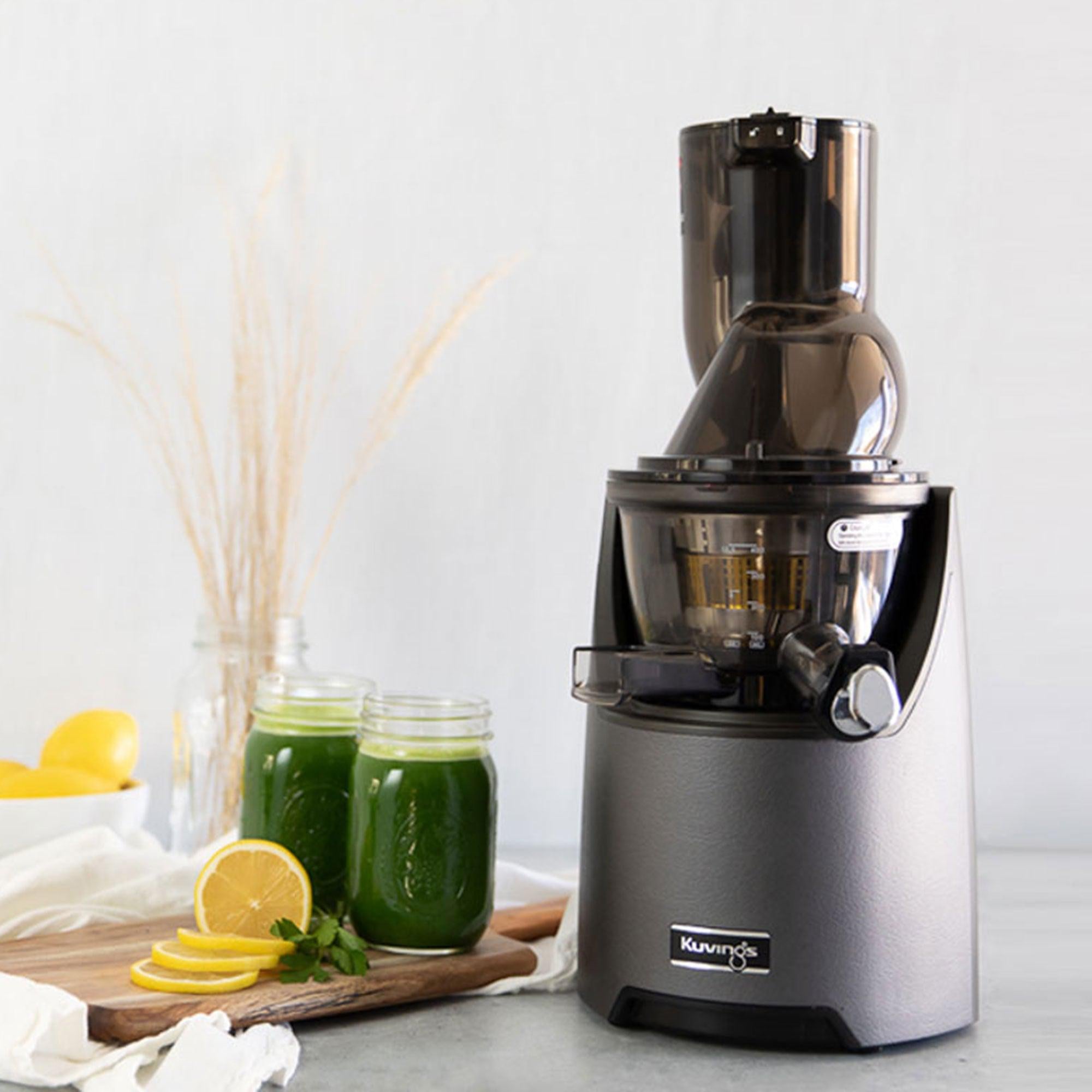Buying Juice: Price Breakdown
If you bought one 12 oz. cold pressed juice 3 times a week, you would pay about $859.56 a year.
That’s assuming the cost of a 12 oz. serving is $5.51, an average we calculated from mail-order juice cleanses, local juice bars, and bottled varieties. Remember, we’re talking about cold pressed juice, not the stuff from the carton.
Making Juice: Price Breakdown
According to our yield tests, it would take 0.43 lbs. of apples, 0.57 lbs. of carrots, and 0.47 lbs. of spinach to make 12 oz. of juice.
The average price of that quantity of those ingredients is $1.78.
If you made 12 oz. of cold pressed juice at home 3 times a week, it would only cost you about $277.68 a year in ingredients. That, plus the initial investment of our EVO820, comes out to $876.68 the first year.
While it costs about $17 more the first year, investing in a juicer really pays off as time goes by. Just take a look:
Year 1 |
Store-bought |
Homemade |
| Kuvings Whole Slow Juicer EVO820 | X | $599 |
| Average price of 12 oz. juice | $5.51 | $1.78* |
| Cost to consume 3 times a week | $16.53 | $5.34* |
| Cost of juicing a year | $859.56 | $277.68* |
| Total amount spend on year 1 | $859.56 | $876.68 |
Year 2 |
Store-bought |
Homemade |
| Kuvings Whole Slow Juicer EVO820 | X | X |
| Average price of 12 oz. juice | $5.51 | $1.78* |
| Cost to consume 3 times a week | $16.53 | $5.34* |
| Cost of juicing a year | $859.56 | $277.68* |
| Total amount spend on year 2 | $859.56 | $277.68 |
*Cost of ingredients calculated using the 2022 USDA national average cost of apples, carrots, and spinach.
After the initial investment, it’s significantly less expensive to make juice at home. Plus, you’ll save even more money by using your juicer to make your own plant milk, sorbet, and smoothies.
More Reasons to Juice at Home
-
Homemade juice is free from preservatives and additives, both of which can alter the taste and nutrient value of your juice.
-
Juice from the store is pasteurized, a process that heats juice to destroy bacteria. It's great for shelf stability, but the heat from pasteurization also kills beneficial enzymes and micronutrients.
-
Homemade juice is customizable. You know exactly what ingredients are going into your body, and you can cater to your specific nutritional needs.
-
Bottled or frozen juice simply can't compare with the taste of fresh squeezed juice.
-
Buying less juice = using fewer plastic bottles.
For more juicing information and inspiration, follow us on Facebook and Instagram.



